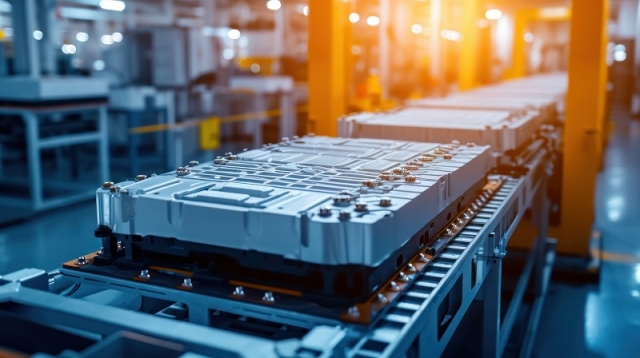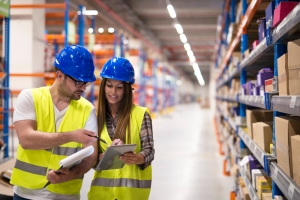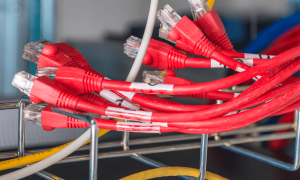Introduction: The Global Demand for Green Energy in Logistics
The logistics and warehousing sectors are at a crossroads, driven by the urgent need for green energy solutions and a rapidly expanding global market. Companies worldwide are seeking ways to reduce carbon emissions while keeping up with growing demands for speed, efficiency, and sustainability. Lithium-ion batteries are at the heart of this transformation, providing a powerful, eco-friendly alternative to traditional fuel sources in warehouses and transportation. As electric forklifts, automated guided vehicles (AGVs), and other electric equipment become standard in modern facilities, the challenge now is finding reliable, high-quality lithium battery manufacturers to support this shift.
In this article, we will examine the critical role lithium batteries play in warehousing and logistics, explore the qualities that make a manufacturer trustworthy, and provide tips on selecting a supplier who can meet the demands of today's energy-conscious economy.
The Expanding Market for Lithium Batteries in Warehousing
Lithium batteries have changed the way warehouses operate. With high energy density, quick charging capabilities, and longer operational lifespans, lithium batteries are ideal for powering electric forklifts, AGVs, and other equipment that keeps warehouses running smoothly. Compared to lead-acid batteries, lithium-ion batteries are lighter, more efficient, and offer a greater number of charge cycles, making them a smart investment for companies looking to cut costs and reduce downtime.
Warehousing and logistics are seeing a surge in demand for these energy-efficient solutions as global supply chains become more complex and e-commerce requires faster turnaround times. According to industry research, the global lithium-ion battery market is projected to grow by more than 14% annually over the next decade, driven largely by the increased adoption of battery-powered machinery in logistics. As companies race to meet the demand, partnering with a trusted lithium battery manufacturer becomes essential for ensuring reliable, long-lasting power solutions.
Why Warehousing and Logistics Rely on Lithium Power
1. Improved Efficiency and Lower Emissions
Electric forklifts and AGVs are just the beginning. Today's warehouses need clean, reliable energy sources that support intensive operations with minimal environmental impact. Lithium-ion batteries emit zero emissions, making them ideal for enclosed spaces like warehouses where air quality is crucial. Moreover, their low maintenance requirements and rapid charging capabilities translate into increased productivity and less downtime.
2. Energy Density and Long Lifespan
Lithium batteries offer high energy density, meaning they can store more energy in a compact form factor compared to lead-acid batteries. This makes them ideal for the space-limited setups found in warehouses, where every square foot counts. Their lifespan also makes them a cost-effective choice for companies looking to make long-term investments in sustainable infrastructure.
3. Flexibility for High-Demand Operations
In warehousing, the need for operational flexibility is paramount. Lithium batteries support multiple charges per day without degrading, enabling electric forklifts and AGVs to work multiple shifts without needing lengthy downtime. This flexibility allows businesses to scale up operations during peak times without adding significant infrastructure costs.
Key Qualities to Look for in a Lithium Battery Manufacturer
Given the importance of lithium batteries to warehouse efficiency, selecting a manufacturer who can meet stringent quality standards is essential. Here's what to consider when evaluating a potential supplier:
1. Proven Quality and Reliability
The best manufacturers will have a reputation for producing high-quality batteries that are durable, safe, and efficient. Look for certifications like ISO standards that signal the company's commitment to rigorous quality control processes. Reliable suppliers will also have clear safety measures in place and a track record of successful battery installations in demanding warehouse settings.
2. Customization Capabilities
Warehouses have different needs, and one-size-fits-all solutions often fall short. Manufacturers who offer customization can provide batteries that are optimized for specific equipment, usage patterns, and power requirements. This ensures a better fit for the operational demands of a particular warehouse or logistics center.
3. Technical Support and After-Sales Service
Technical support is invaluable, especially for companies making the shift to electric-powered equipment. Reliable manufacturers provide not only a product but a partnership, offering technical support, training, and after-sales service. This level of support helps ensure that any issues can be quickly addressed, minimizing disruption to operations.
Spotlight on RICHYE: A Trusted Partner for Lithium Battery Solutions
As a leader in the lithium battery industry, RICHYE stands out as a manufacturer known for quality, performance, and customer satisfaction. RICHYE's lithium batteries are engineered to meet the high demands of warehousing and logistics applications, providing exceptional durability, safety, and cost-effectiveness. With a focus on quality and innovation, RICHYE has established itself as a trusted partner for companies around the globe. Whether you're powering AGVs, forklifts, or other electric equipment, RICHYE delivers solutions that ensure reliability and efficiency in high-demand environments.
Evaluating the Market Landscape: Global Production and Economic Trends
The global demand for lithium batteries is on the rise, spurred by the push for sustainable energy and tighter environmental regulations in major economies. Here's a look at how different regions are shaping the lithium battery landscape and what warehousing companies should consider:
1. North America: Embracing Green Technology in Logistics
The United States and Canada are investing heavily in green energy initiatives, particularly in the transportation and logistics sectors. American companies are increasingly interested in local battery manufacturing to reduce dependency on overseas suppliers and ensure better quality control. The Inflation Reduction Act has further incentivized companies to adopt sustainable practices, creating opportunities for lithium battery suppliers with strong eco-credentials.
2. Europe: Leading the Way with Environmental Regulations
Europe is at the forefront of environmental legislation, making the region a critical market for green logistics solutions. Countries like Germany and the Netherlands have set high standards for emissions reduction, creating a favorable climate for lithium battery adoption. European warehouses are embracing electric-powered fleets and looking to reliable battery manufacturers who comply with strict safety and sustainability standards.
3. Asia-Pacific: A Manufacturing Powerhouse
Asia remains a major player in lithium battery production, with countries like China, Japan, and South Korea dominating the market. The region offers competitive pricing and a robust manufacturing infrastructure, although quality can vary widely among suppliers. For international companies looking to source lithium batteries, finding manufacturers in Asia with strong quality control and global certifications is essential.
Future Trends: How Lithium Battery Innovation Will Shape Warehousing
1. Solid-State Batteries
Solid-state batteries, with their enhanced safety features and greater energy density, are set to revolutionize the lithium battery market. Unlike traditional lithium-ion batteries, solid-state technology is less prone to overheating, offering a promising solution for high-demand applications in logistics.
2. AI-Driven Battery Management
Artificial intelligence is transforming battery management systems, allowing for real-time monitoring and predictive maintenance. These systems can alert warehouse managers to potential issues before they become problems, helping to extend battery lifespan and optimize performance.
3. Recycling and Sustainability Initiatives
As lithium batteries become more common, recycling and disposal will become critical issues. Leading manufacturers are investing in recycling programs that will help reduce waste and recover valuable materials, supporting a circular economy in the warehousing sector.
Conclusion: Choosing a Reliable Battery Manufacturer for a Sustainable Future
The transition to lithium battery-powered equipment is a pivotal step toward more sustainable and efficient warehouse operations. As the market for lithium batteries grows, selecting a trustworthy manufacturer becomes more important than ever. By focusing on quality, customization options, and strong customer support, companies can find suppliers who will contribute to long-term success.
With the backing of a reliable partner like RICHYE, warehousing and logistics companies can confidently invest in battery technology that supports their green energy goals and keeps their operations running smoothly. RICHYE's reputation for high-quality, reliable batteries has made it a preferred choice for those looking to power their warehouses sustainably and efficiently.
Embracing lithium battery technology today isn't just a smart financial decision—it's a step toward a more sustainable, efficient future in logistics. By partnering with the right lithium battery manufacturer, companies can ensure they're prepared to meet the challenges of tomorrow's warehousing landscape.






